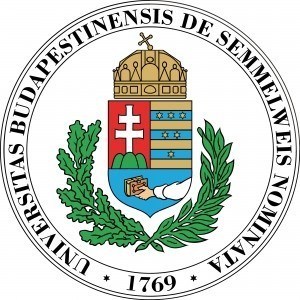Photos of university / #uni_southampton
The Master of Laws (LLM) in European and Comparative Property Law at the University of Southampton offers an in-depth exploration of the key concepts, principles, and legal frameworks surrounding property law in Europe and beyond. Designed for law graduates, legal practitioners, and scholars, this programme provides students with a comprehensive understanding of the diverse legal systems that govern property rights, land use, and related issues across different jurisdictions. Participants will examine legal disputes involving land ownership, leases, mortgages, and transfer mechanisms while critically analysing the interaction between national laws and European legal harmonisation initiatives. The programme emphasizes comparative analysis, allowing students to identify similarities and differences in property law approaches within European countries and other legal systems globally. Through a combination of taught modules, seminars, and independent research, students will develop critical thinking skills and nuanced legal knowledge that are essential for practicing in an increasingly interconnected legal landscape. The curriculum covers topics such as land registration, tenants' rights, property development, environmental law, and the impact of European Union legislation on domestic property law. Furthermore, students will have opportunities to engage with real-world case studies and legal challenges, fostering practical skills applicable to legal advisory roles, policy-making, or academia. The programme is delivered by experienced faculty members with expertise in European law, property law, and international legal issues. Graduates of the programme will be well-equipped to work in legal practice, government agencies, NGOs, or international organizations focused on property rights, land use planning, and real estate development. With its strong research component, the LLM in European and Comparative Property Law at Southampton prepares students for further academic pursuits or for immediate entry into professional legal environments requiring a sophisticated understanding of property law across borders.
European and Comparative Property Law at the University of Southampton offers a comprehensive exploration of property laws across different legal systems, emphasizing both theoretical frameworks and practical application. The programme is designed to equip students with an in-depth understanding of the core principles governing property rights, land registration, landlord-tenant relationships, and zoning laws within European jurisdictions and comparative contexts. Students will analyze diverse legal traditions, including civil law, common law, and mixed systems, to understand how property rights are defined, transferred, and enforced across borders. The curriculum covers essential topics such as the historical development of property law, modern legislative reforms, and challenges arising from globalization and European integration. Through a combination of lectures, seminars, and case studies, students will examine landmark rulings, constitutional aspects of property rights, and issues related to urban development and environmental sustainability. Emphasis is placed on critical thinking and legal analysis skills, enabling students to interpret and compare legal texts and judicial decisions effectively. The programme also highlights contemporary issues such as property ownership rights in digital environments, the impact of international treaties, and the regulation of property markets. Students will have opportunities to engage with real-world scenarios via internships and collaborative projects, fostering practical understanding and professional readiness. Graduates of this programme will be well-prepared for careers in legal practice, policy-making, academia, or international organizations involved in property and land law. The blend of theoretical knowledge with practical insights ensures that students develop a nuanced perspective on the complexities of property law in a European and comparative framework.
Program requirements for the MSc in European and Comparative Property Law at the University of Southampton include a Bachelor’s degree with a minimum classification of 2:2 (lower second class) or equivalent in law or a related discipline. Applicants with other qualifications or relevant professional experience may also be considered on a case-by-case basis. Proficiency in English is required, demonstrated by a valid IELTS score of at least 6.5 overall, with a minimum of 6.0 in each component, or equivalent evidence of English language proficiency. The programme is designed for students who have a strong interest in property law across different jurisdictions, particularly within the European context, and aims to provide a comprehensive understanding of comparative legal systems, property rights, and land law.
Applicants should submit a completed application form, academic transcripts, and a personal statement explaining their interest in the programme and their career aspirations. Letters of recommendation from academic or professional referees are also typically required. Prior legal study or experience in property law is advantageous but not necessarily mandatory; the programme is suitable for both new graduates and legal practitioners seeking to deepen their knowledge of European and comparative property law.
Students are expected to attend lectures, seminars, and workshops, and are required to complete coursework, including essays, case law analyses, and research projects. A dissertation or research project is also part of the programme, allowing students to explore an area of property law relevant to their interests in greater depth. Entry is subject to the university’s standard admissions procedures, including interviews or additional assessments if deemed necessary. The programme aims to equip graduates with the legal knowledge, analytical skills, and practical understanding needed for careers in legal practice, academia, or policy-making related to property issues across Europe.
Funding for the European and Comparative Property Law LLM program at the University of Southampton typically encompasses a range of options designed to support students financially throughout their studies. Prospective students are encouraged to explore university-specific scholarships, bursaries, and student loan schemes available to both domestic and international applicants. The university offers several merit-based scholarships that can significantly offset tuition fees, including scholarships targeted at law students demonstrating academic excellence or financial need. Additionally, students may qualify for external funding sources, such as government grants or private scholarships offered by legal associations and foundations focused on property law and European legal studies.
The University of Southampton also advises students to consider government-sponsored student loan programs, which may vary depending on the student's country of residence. For EU and UK students, student loans administered through the Student Loans Company (SLC) provide an accessible means to finance tuition and living expenses. International students are often encouraged to seek scholarship opportunities from their home governments or international organizations that promote legal education and cross-border legal research.
Apart from scholarships and loans, students are advised to budget for living expenses, including accommodation, food, transportation, and study materials. The university offers guidance and support services on financial planning, ensuring students are well-informed about managing their finances during their academic career. Furthermore, some students may explore part-time employment opportunities available on campus or in the local area, subject to visa regulations if applicable.
In summary, funding for the European and Comparative Property Law MSc at the University of Southampton is accessible through a combination of internal scholarships, external funding sources, government loans, and personal financial planning. Applicants are encouraged to research early and consult the university’s financial aid office to identify the most suitable funding options tailored to their circumstances.
The European and Comparative Property Law LLM at the University of Southampton offers students a comprehensive understanding of the fundamental principles and legal frameworks governing property rights across different European jurisdictions. The program is designed to equip students with advanced knowledge of property law, including the regulation of ownership, leases, mortgages, and land registration, with a particular emphasis on comparative analysis between different legal systems within Europe. It aims to develop critical analytical skills needed to evaluate and compare legal approaches to property issues, fostering an appreciation of diverse legal traditions and practices.
Students will engage with a variety of core and optional modules tailored to explore topics such as co-ownership, tenancy arrangements, enforcement of property rights, development controls, and the legal aspects of property transfer. The course also emphasizes the socio-economic context of property law and its impact on issues like urban development, housing, and environmental sustainability. The program is suitable for those seeking to pursue careers in legal practice, academia, or policy-making within the field of property law, especially in multinational or European contexts.
Throughout the program, students benefit from the expertise of academic staff with extensive experience in European property law, alongside access to a rich array of legal resources, case law, and comparative studies. The teaching approach combines lectures, seminars, case analyses, and interactive workshops to promote critical thinking and practical understanding. The program culminates in a dissertation that allows students to conduct independent research on a specific topic relevant to European and comparative property law.
The program is typically structured over one year for full-time students or two years for part-time students. It is delivered at the University of Southampton’s campus in the UK, offering a multicultural learning environment with opportunities to engage with legal professionals and participate in legal clinics or internships. Graduates of the program are well-equipped to work in legal advisory roles, governmental agencies, NGOs, or academic institutions, specializing in European property law or comparative legal analysis.










